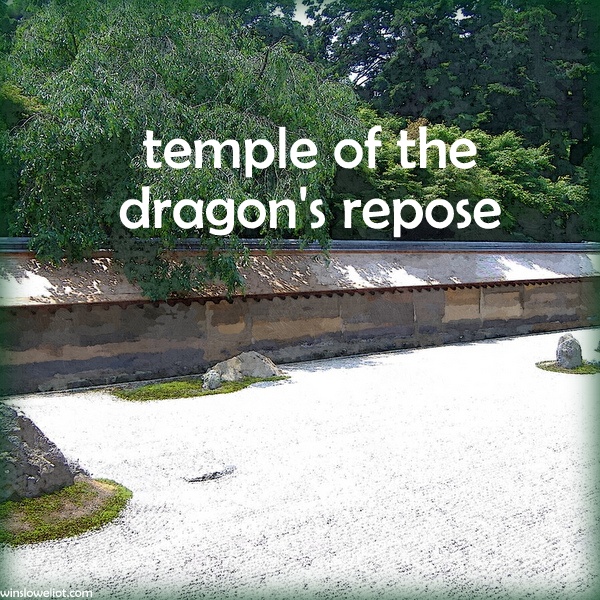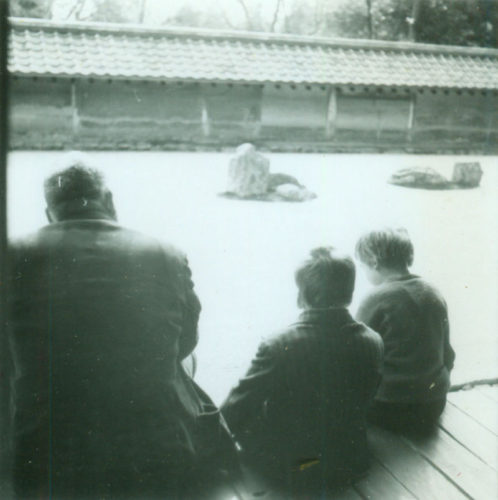
Stillness 1-1-2021: One of my favorite places I visited many years ago was a Zen garden in Kyoto known as the Garden of the Dragon’s Repose. It’s in the heart of the Ry?an-ji Temple, which I don’t remember as well as I remember the garden itself. In the temple were painted giant dragons on the ceiling, and pictures of the gods of wind and thunder, and an exquisite tea house, which I would have been particularly drawn to today. But beyond all this, on the quiet, dark wood veranda, we sat for a few hours on the edge of the mystical rock garden, simply looking at the carefully placed rocks floating on a white gravel sea. It rests in my memory as one of the most peaceful places on earth.
I think one of the loveliest aspects of Japanese daily life is the crowded bustle and intensity of a busy market street that suddenly and abruptly changes to utter peace and quiet when one enters a home, a garden, or a tea house. The reverence and stillness pervades even the smallest of spaces. It is very different from the Dickens-like bustle and noise and slapping-on-the-back and boisterous hellos we are used into the West. Both are good—but the peacefulness and reverence is something we could appreciate more in the West, especially during awkward social interactions or when encountering young children, who usually need time and quiet to get used to us. But maybe we all need that time and quiet when we encounter each other–maybe it’s not just children who need it.
The fourteen rocks in the Temple of the Dragon’s Repose are placed so that they all can’t be seen at the same time. In fact, no matter from which angle they’re meditated on, only fourteen are visible at a time. Tradition says that when one attains enlightenment one can view all fifteen rocks at the same time.
 We counted and counted, but never were able to see more than fourteen rocks. Another game we played was creating our own names for the gardens. We did this often during our travels: retitling a painting, a statue, a street, or, in this case, a Zen garden. It was one of my favorite games and this garden I named: “Shoes Floating on Water.”
We counted and counted, but never were able to see more than fourteen rocks. Another game we played was creating our own names for the gardens. We did this often during our travels: retitling a painting, a statue, a street, or, in this case, a Zen garden. It was one of my favorite games and this garden I named: “Shoes Floating on Water.”
I thought of that lovely afternoon so many years ago as I awoke this morning at the start of a new year. I thought how it is that we float into a new dawn, one that offers us a chance to feel courage, compassion, and hope. As we mark our course into our future, it feels good to float rather than to march into the unknown. It feels good to try to view an unseen boulder from a different—inner—perspective.
It feels good to let ourselves feel a powerful, dragon-like peace.
